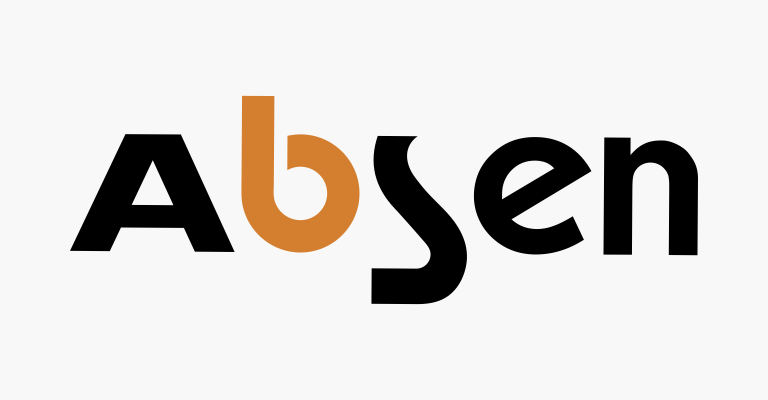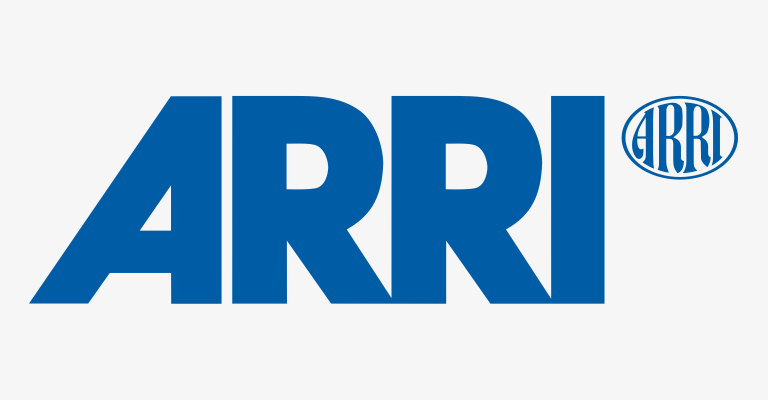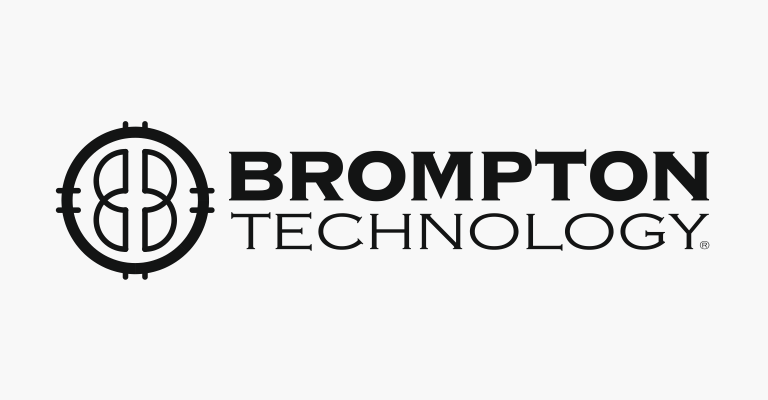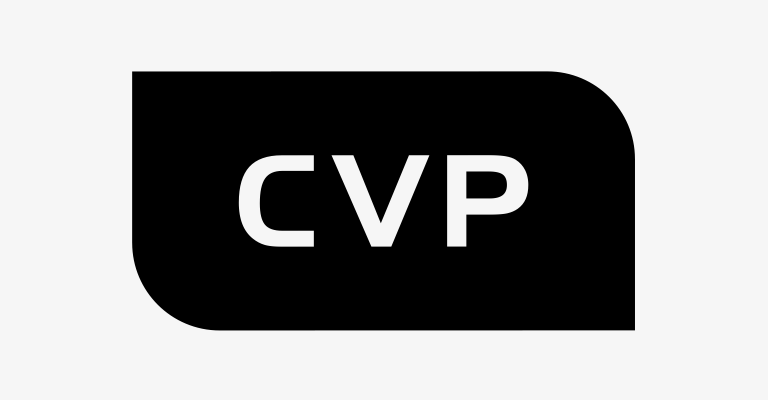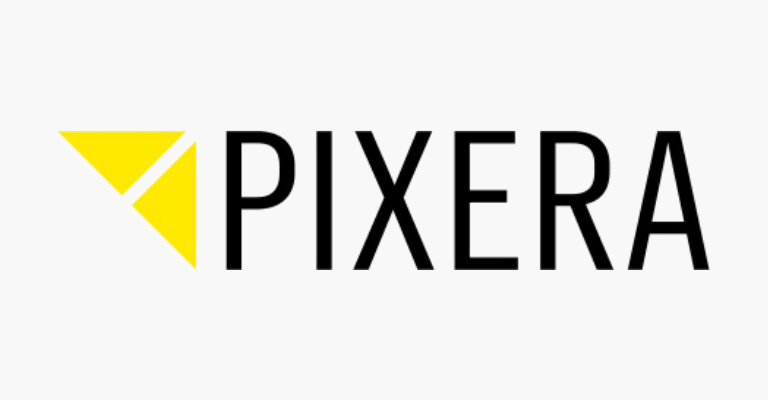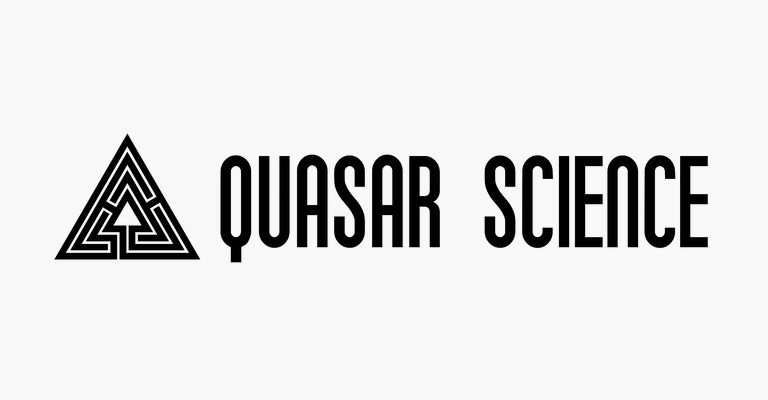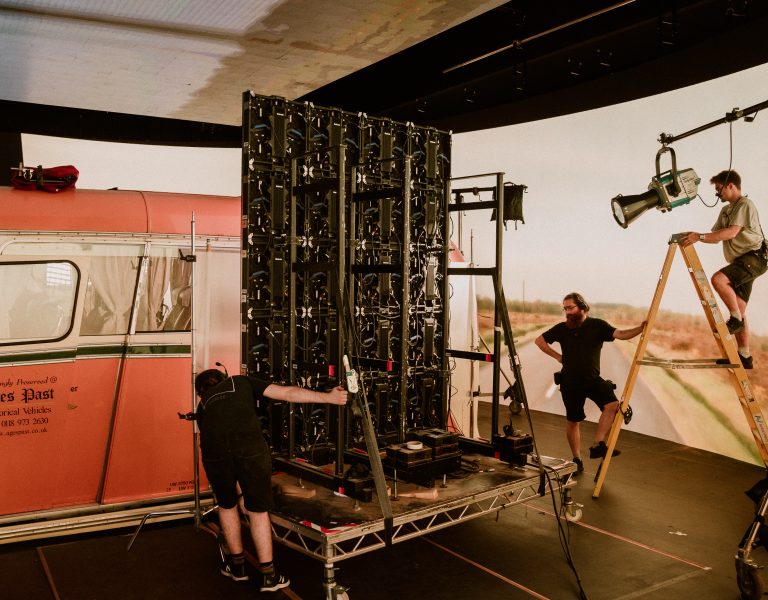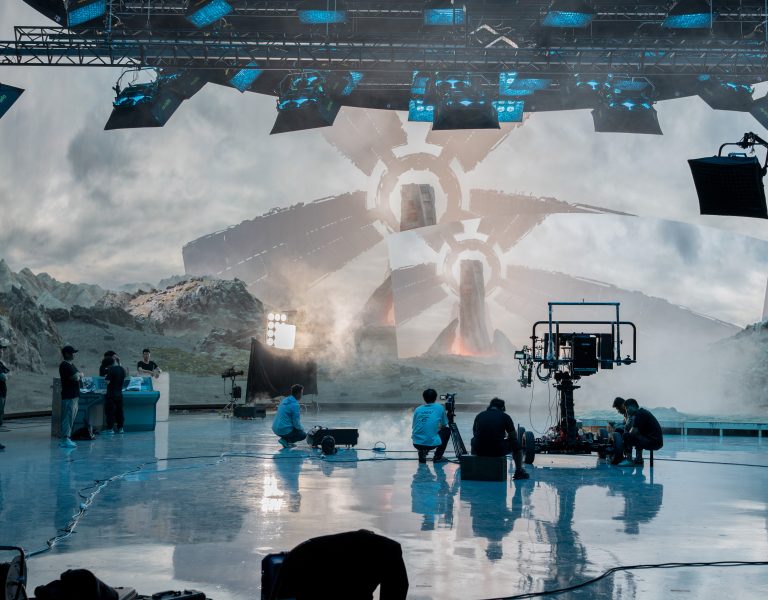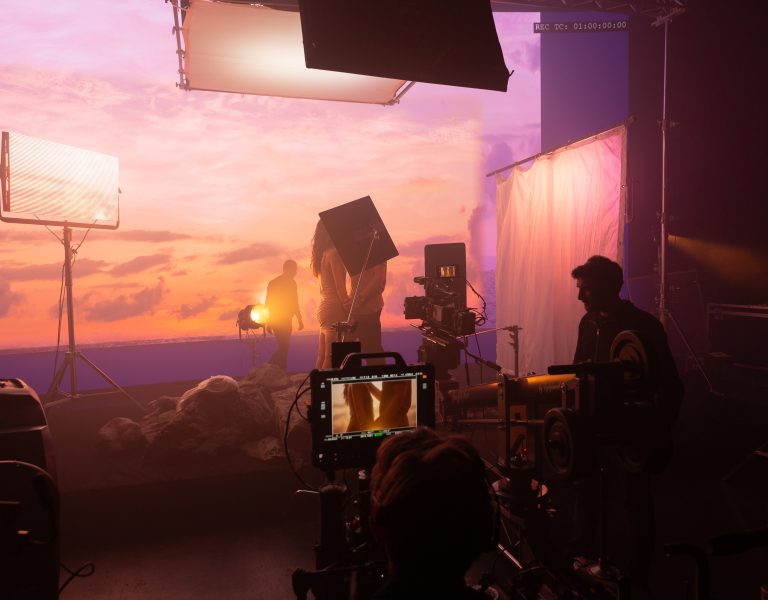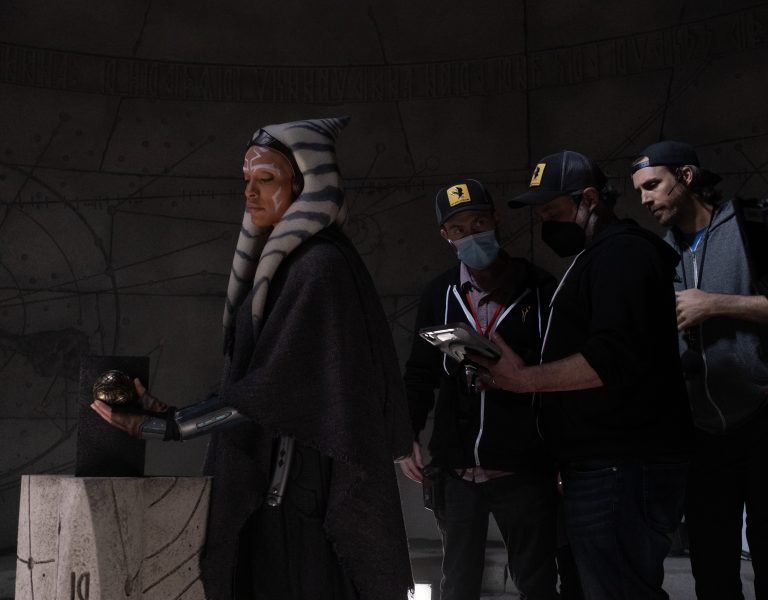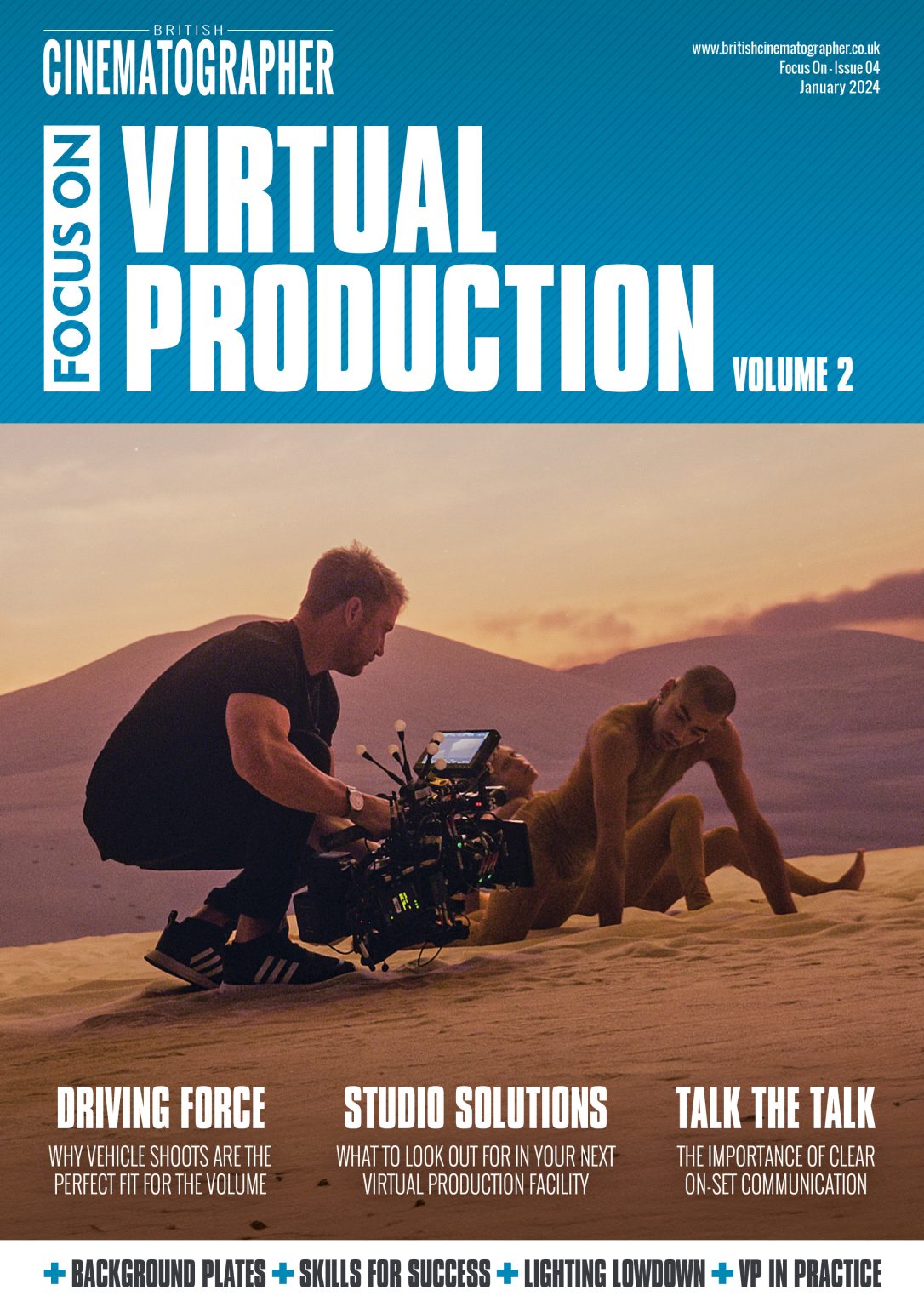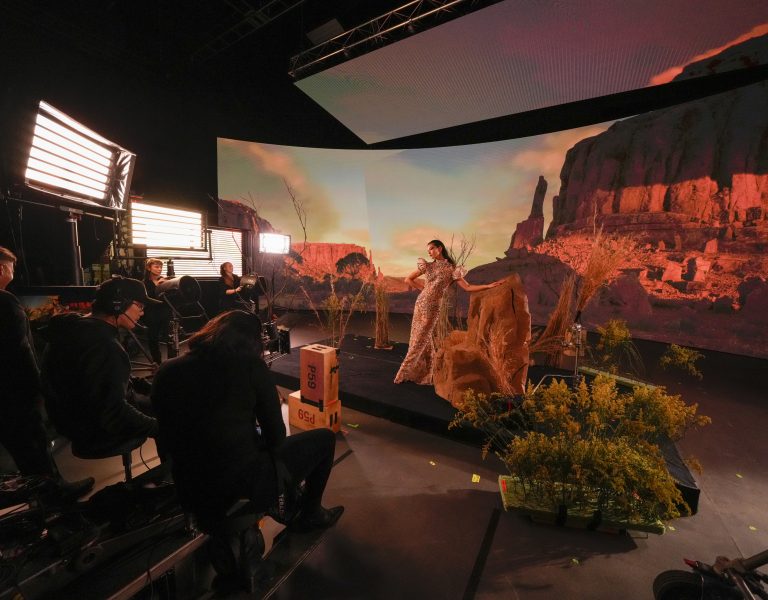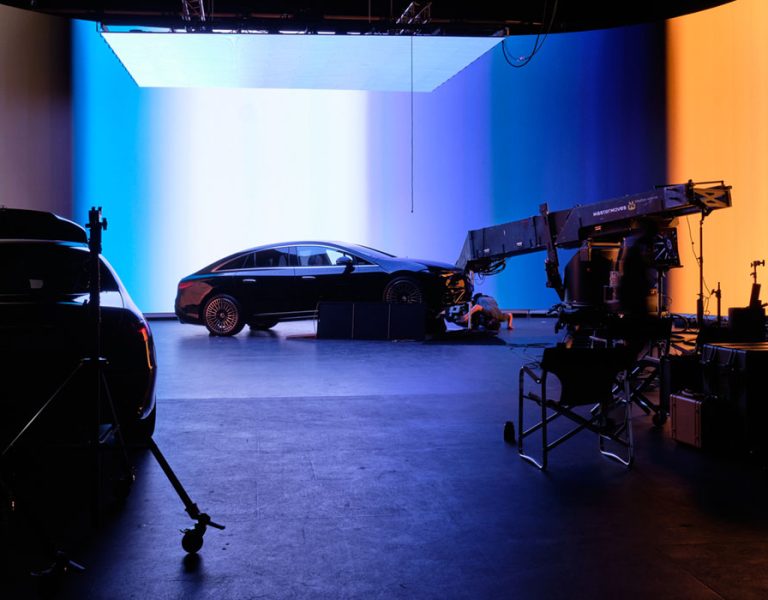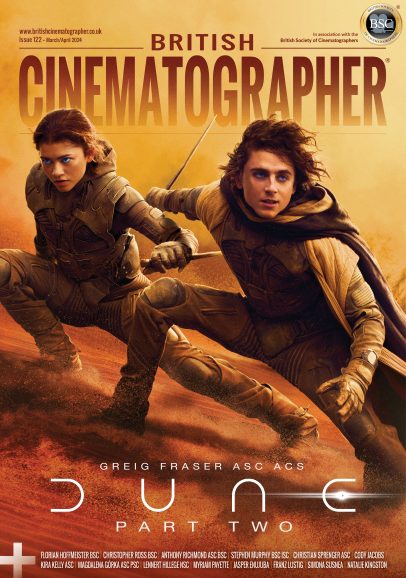Over three years since a pivotal virtual production (VP) thinktank came together, Universal Pixels looks at how the UK industry was able to not only hone the discipline, but become confident in supporting productions in using VP.
In 2022, the British Film institute estimated that the HETV sector was worth over £6 billion, and that same year, the Creative Industries Council found the UK to be a world leader in the field. Given virtual production’s relatively recent establishment, Universal Pixels looks back at the test space where it all began.
In autumn 2019, Universal Pixels, a state-of-the-art video company, was working across live video production activities comprising concert touring, special events and the arts. The team was also entering into a new sector of business; film, TV and advertising, making key hires including Dan Edmonds, head of ICVFX.
Fast-forward to March 2020, and just as the COVID-19 pandemic was about to take hold across every creative industry, conversations around virtual production really began taking shape.
“There was an idea that if we could get together with industry manufacturers, creatives and technologists to produce something in VP, we could establish something really positive during such a difficult time,” says Dan Edmonds, Universal Pixels ICVFX account manager. “Brian Mitchell, freelance producer, was head of Rebellion Film Studios at the time, and he offered to host the test volume.
“It was initially meant to last a couple of weeks, but it ended up being a lot longer because it was so popular. We built an LED volume with a ceiling, camera tracking and media servers, and the idea was that people could just come by and have a play with the kit, enjoy a test day and experiment with whatever ideas they wanted to realise. While people are keen not to relive the pandemic work drought, we also think it’s important to remember the origin story of virtual production in the UK, and how incredibly well the industry as a collective has done since. So many of the projects that came out of this time have changed the way VP is created in the UK; it was an influential moment.”
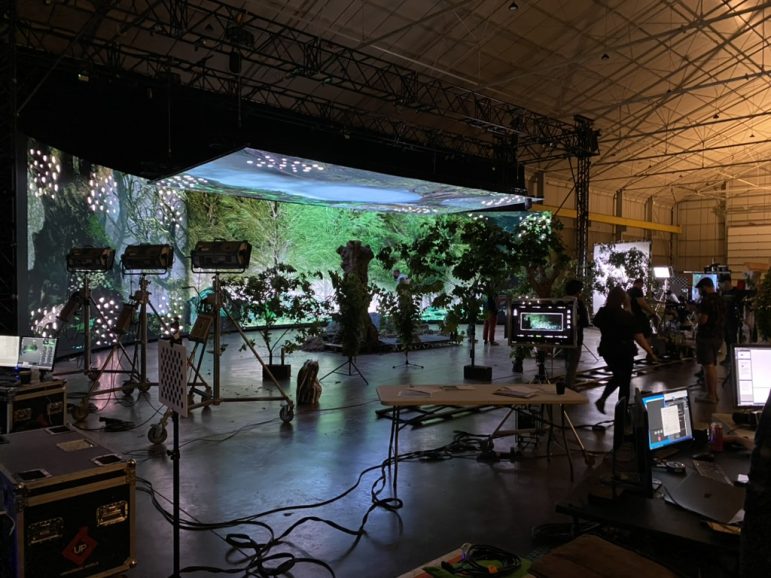
Collision of creativity and technology
One of the projects filmed at Rebellion was Percival, a short film shot entirely in VP. Universal Pixels, Satore Studios, ARRI and Epic Games joined forces with the Oxfordshire-based film studio and used Unreal Engine to render the environments in real time, under the watch of cinematographer Eben Bolter BSC.
The film also sees Rebellion CEO Jason Kingsley play the lead character. At the time he told the Hollywood Reporter: “It was thrilling to work in the collision of creativity and cutting-edge technology. This has immense potential to enable grand scale productions with controlled costs… It was important for me as CEO of Rebellion to fully immerse myself in the technology and production process to better understand the thrilling new opportunities ahead.”
During this time, the buzz around VP technology was being hailed as the future of the entertainment industry, however, the experts involved were troubleshooting the bleeding edge technologies alongside their makers. Utilising very early versions of Unreal Engine’s nDisplay allowed the industry collective to feedback suggestions. Having Unreal on set also meant that new Beta versions were available to test in each variation.
At the same time, disguise was testing what would become its new rx machine, a dedicated system engineered for the future of virtual production. There was consistent communication between Satore Studios’ Tupac Martir and disguise, unveiling brand new software versions as they were developed. This captive focus during the COVID-19 limitations enabled solid working solutions to come to fruition and gave Universal Pixels an incredible insight into what creative technologists wanted to be able to utilise on set.
Collaborators Satore Studios bought in two new Unreal Render Nodes, while ARRI provided an Alexa camera including a full suite of Ultra Prime and Anamorphic lenses, monitors, and grip kit.
“Because the industry had shut down for months and was re-opening very slowly, we could only work within very restricted protocols,” says UP’s Dan Edmonds. “And the people who’d worked in TV and film continuously for decades suddenly had time on their hands to get to grips with what VP could achieve. It was the thing that was going to enable shoots that had started before COVID, to get finished. When we went into Rebellion in August 2020, it was the first real opportunity for many experienced people to have a look at a VP stage.”
Roly Oliver, business development manager at UP, agrees: “Rebellion was a launch pad for people getting into virtual production because they could become confident without being under the usual pressures of a set. Their exposure was therefore different, and when you look at the people who were involved then, and what roles they are working in now, it’s quite impressive. It makes us very proud of the community this collaborative experiment was able to foster.”
Some key names which should be championed include Liam Wedge, technical artist at Garden Studios who was the Unreal/tracking operator for Universal Pixels during the Rebellion shoot, as was Mark Pilborough-Skinner, who is now Garden Studios’ head of virtual production. Annie Shaw was a VFX producer at Rebellion during the test build, and 1st AD/producer on Percival; she’s now head of virtual production for MPC. Saul Gittens is a DP who spent extensive time testing on the LED volume. One of Universal Pixels’ 2023 hires was Gareth Manicom, who joined the company from Lux Machina – he built the stage at Rebellion.
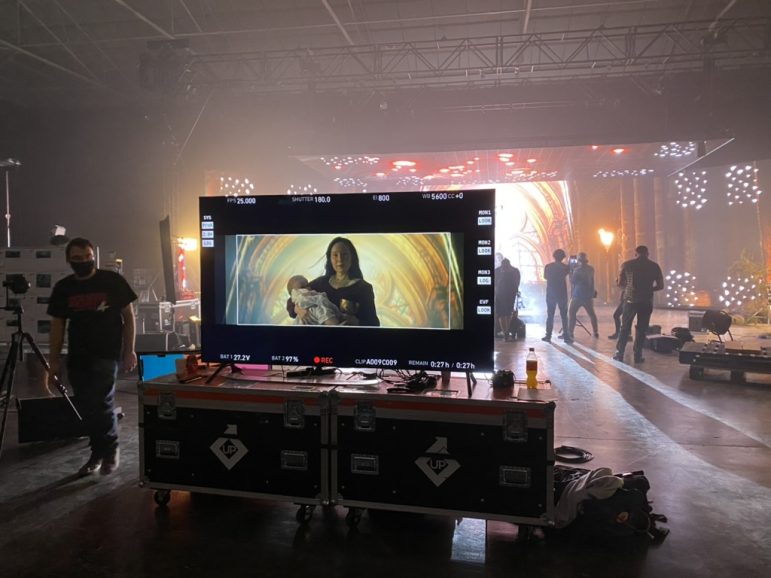
Driving change
Ian Sharples of Driving Plates provided plates for the shoot and worked alongside Gavin Finney BSC on a shoot called Dream Catcher.
Edmonds says: “Working with Gavin Finney is always a great experience. He’s a fantastic cinematographer who has worked on The Man Who Fell to Earth, Good Omens and The Undeclared War, all shot in VP. We recently worked with him on Good Omens S2, starring Michael Sheen and David Tennant, and the visual output is next level. I do think the UK is leading the way…
“VP has advanced so much in the last three-and-a-half years. It’s moved on exponentially, even down to things like the camera tracking, but our time at Rebellion is where we learned to put our current and trusted techniques into practice.”
In November 2020, Universal Pixels delivered the Mobo Awards in ICVFX in what would become the company’s first commercial VP job. Ever since, there has been a steady stream of VP projects in film and television, including Amazon Prime’s The Power, starring Toni Collette, and BBC One’s crime drama Better.
Mercer concludes: “Rebellion Film Studios truly enabled a hotbed of research. What Quite Brilliant shot when they came to Rebellion is the best thing I think I’ve seen in terms of being able to demonstrate how virtual production works on set, and they’ve recently won an APA (Advertising Producers Association) Award for ‘Best Use of Virtual Production’.
“Essentially, Rebellion enabled us to learn stable workflows. This period in time was a genuine education and the result of that, for everyone involved, continues to shine a light on UK talent.”
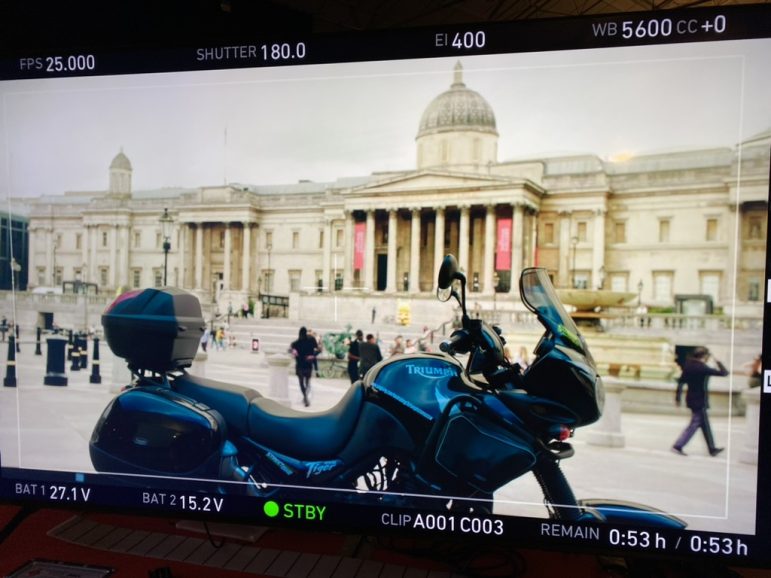
–
Find out more: https://universalpixels.com/
–
THis article is sponsored by Universal Pixels

